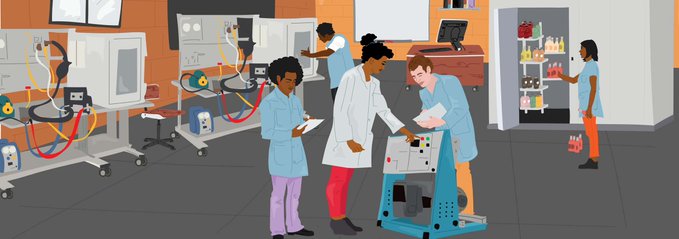|
Getting your Trinity Audio player ready...
|
“This funding will help ACRA address resistance to change with regards to the implementation of environmentally sustainable natural refrigerants, support the academy in becoming a centre of excellence in Africa as well as further develop food security by maintaining the cold chain,” Mr. Grant Laidlaw, ACRA Managing Director at the project launch on 14 October 2022.
The Air Conditioning and Refrigeration Academy (ACRA) and the South African Refrigeration and Air Conditioning Contractors Association (SARACCA) have been awarded three million euros by the Skills Initiative for Africa Financial Cooperation (SIFA FC) for the Air Conditioning and Refrigeration, Infrastructure, Apprenticeships, and Skills Development Project. The investment is designed to improve youth employability and address the lack of specialised skills in the heating, ventilation, air conditioning, refrigeration, and natural refrigerants sectors.
The three-year project will benefit 2500 trainees, 30 percent of whom are women, 90 percent youth aged 15 to 30, and 80 percent coming from low-income and vulnerable groups. The construction of a brand new training centre with state-of-the-art equipment will train unemployed youth, giving them the skills and competencies to be qualified technicians that meet the industry and labour market demands.
The global heating, ventilation, and air conditioning (HVAC) market was valued at US$156.44 billion in 2021 and is expected to be worth US$231.11 billion in 2027. The sector, therefore, has the potential to play a significant role in reducing unemployment in South Africa and Africa as a whole. Additionally, by championing natural refrigerants in place of traditional synthetic refrigerants, the project contributes to upholding the objectives of the Montreal Protocol and subsequent Kigali Amendment in the phasedown of ozone-depleting substances that contribute to global climate change.
Representing the South African Department of Higher Education and Training, Mr Zamokwakhe Khuzwayo emphasised the need for concerted efforts in responding to unemployment on the continent.
“The persistent and structural nature of youth unemployment means that the issue can no longer be addressed through isolated initiatives. The situation requires an extensive, coordinated and sustained effort to respond to both the changing needs of the economy and young South Africa and Africa.” He added that this effort must be mobilised, cut across sectors and actors, and include a wide variety of stakeholders and decision-makers from the Government, the private sector, academia, development partners and civil society. “It is for this reason, one cannot ignore the great initiative of SIFA Financial Cooperation,” he added.
The project is part of the Skills Initiative for Africa Financial Cooperation (SIFA FC), an initiative of the African Union Commission, with financing through KfW Development Bank and the European Union. SIFA FC is implemented by AUDA-NEPAD, which facilitates and coordinates the funding of skills development projects in eight African countries. The initiative promotes young Africans’ occupational prospects by fostering the employment and entrepreneurship of youth, women, and vulnerable groups.
Speaking on behalf of Ms Nardos Bekele-Thomas, CEO of AUDA-NEPAD, Mrs Unami Dube reiterated the importance of private sector-owned and led initiatives to partner with the public sector in improving the skill development ecosystem. “Important initiatives that will spur growth and employment will include SME development, ensuring greater inclusion of women and other disadvantaged groups, including disabled persons. This is key to improving youth employment outcomes,” she added.
SIFA FC is based on three funding windows and operates in several African countries. Currently, these include Cameroon, Ghana, Ethiopia, Kenya, Nigeria, South Africa, Togo, and Tunisia. The three funding windows cater for different strategies: While Funding Windows I and II are designed for large investment projects, including the construction or rehabilitation of vocational schools and equipment of training facilities, the third Funding Window supports smaller, innovative pilot project.






